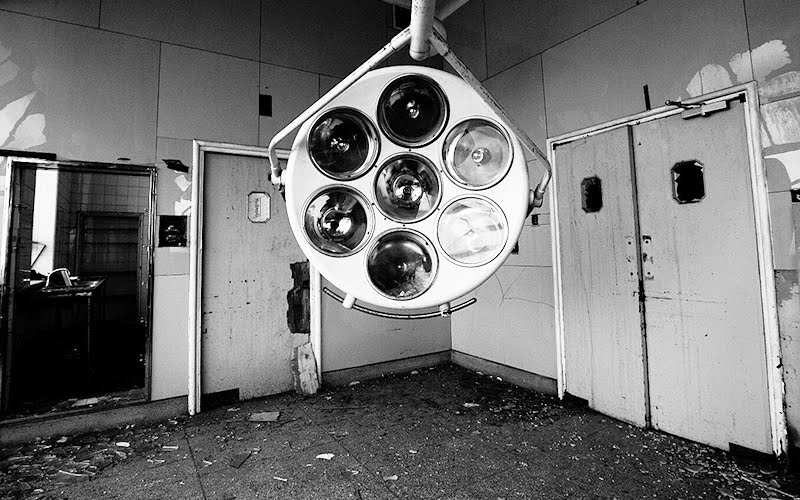While Matt “the App” Hancock waxes lyrical about the merits of new unproven digital solutions, the reality facing today’s NHS is a desperate shortage of capital funding even to upgrade or replace crumbling buildings and clapped out equipment.
So says a shocking new report from the Health Foundation Failing to capitalise. In just 24 readable pages it paints the scale of the problem created by almost a decade of austerity-driven cuts and limits on capital spending since 2010. It reveals that capital spending in NHS trusts has fallen 21% to £3.1bn between 2010/11 and 2017/18, and as a share of NHS spending it has fallen from 5% in 2010 to 4.2% in 2017/18.
The report pulls no punches, stressing the extent to which the NHS is now lagging behind the resources available in comparable countries:
“The UK now spends about half the share of GDP on capital in health care compared with similar countries, and is far behind other countries in the number of MRI and CT scanners per capita.”
The situation is made worse by years of milking resources from already inadequate capital budgets to prop up even less adequate revenue and limit the size of trusts’ deficits. This is also what seems to have happened to most of the money raised from increasing sales of NHS land and property assets:
Sales of NHS capital have risen significantly since 2015/16, with over £400m in sales in 2017/18 (compared with £175m in 2010/11).
“While the government has committed to proceeds from sales being re-invested, this is not always the case, and in 2017/18 almost two-thirds of the proceeds from land sales went into the revenue, rather than capital, budget.” (p12)
However capital to revenue transfers are not the only cause of the problem: “the UK would still have very low capital spending, by international standards, had these transfers not occurred.”
As the capital budget has been spent on short term reduction of deficits, the maintenance backlog in NHS trusts has been rising, from £4.4bn in 2013/14 to over £6bn by 2017/18 (as reported in Lowdown #2).
The backlog, still growing, is around double the amount of annual capital spending in NHS trusts. Over £3bn of this backlog is ‘high’ and ‘significant’ risk, the two highest risk categories.
In 2017, the Naylor review estimated the backlog at just £5bn. The Health Foundation now warns that “investment in reducing the backlog needs to rise by approximately three-quarters just to stop it from growing further.” (p19)
Without a change of direction on capital funding, the vision and ambition of Matt Hancock and NHS England for widespread use of “digital solutions” will inevitably fall flat:
“In 2018, the government announced a vision for digital, data and technology in health and care, with the goal of the UK leading the world in health technology. “
However NHS trusts have seen a 10% fall in plant and machinery since 2010/11.
“While IT has increased, it still makes up a very small proportion of the total value of NHS capital, at less than 5%.* It is unrealistic to expect the NHS to be a world leader in health technology when its capital spending on health care is much lower than in comparable countries, only a very small proportion of this is spent on IT, and spending on plant and machinery is declining.” (p11)
There is qualitative evidence that trusts are unable to afford the most modern technology, such as scanners, while many are also using equipment past their estimated useful lives. Low levels of diagnostic equipment threaten the ability of the NHS to improve care in line with commitments made in The NHS Long Term Plan (for example, new rapid diagnostic centres to improve early diagnosis of cancer) (p18)
Dear Reader,
If you like our content please support our campaigning journalism to protect health care for all.
Our goal is to inform people, hold our politicians to account and help to build change through evidence based ideas.
Everyone should have access to comprehensive healthcare, but our NHS needs support. You can help us to continue to counter bad policy, battle neglect of the NHS and correct dangerous mis-infomation.
Supporters of the NHS are crucial in sustaining our health service and with your help we will be able to engage more people in securing its future.
Please donate to help support our campaigning NHS research and journalism.


